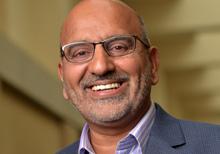In his recent blog post, Thomas Eich asks if particular issues of medical ethics are “really only about the issue at hand, as is usually claimed in the course of such debates?” “How strong is the presence of other factors in these debates,” he continues, “which are not directly linked to the medical technology under discussion?”
Eich is, of course, referring to the reductionist assumptions that some Muslim ethicists make about sexual mores followed in a “morally corrupt” West versus those adhered to in a “virtuous East.” Sure, some authors do moralize in an impoverished East vs. West, or clash of civilizations, mode. Similarly, Sunni authors play the game of trying to upend the views of Shi`i ethicists without providing compelling ethical arguments. All of this is to be deplored, of course.
If Eich provided details as to how he thought German bioethical reasoning overlapped with the Egyptian cases Sherine Hamdy discussed in her book, then such an intervention would have disrupted the unhelpful West vs. East binary discussion in bioethics across faith traditions.
In my view, the main story of Eich’s discussion of heterologous or donor insemination, known as in vitro fertilization (IVF), is the emerging notion of a new construction of the understanding of the family. From Eich’s presentation it becomes clear that most Shi`i authorities work with a dual ethical template. Firstly, they rely on a template of genetic parenthood by identifying offspring with their genetic parents — namely those who are the donors of eggs or sperm, who are considered to be the “biological parents.” They uphold this dimension strongly. Sunni authorities inexplicably view donor gametes as a form of adultery, while Shi`i authorities do not view it with this level of moral severity. Assisted fertilization is not adultery in their view. Secondly, Shi`i ethical thinking nudges us in the direction of coming to terms with the concept of “social parents” who raise offspring born out of assisted reproduction (donor) fertilization procedures. Hence, two sets of parents, “genetic or biological parents” and “social parents”, affirm both forms of parentage. In other words, in assisted reproduction, parentage becomes a hybrid of both genetic and social constructions of parenthood. In some way, the emergent idea of “social parents” opens the door to adoption, and a new way of approaching an issue that has always posed a problem for Muslim ethicists.

